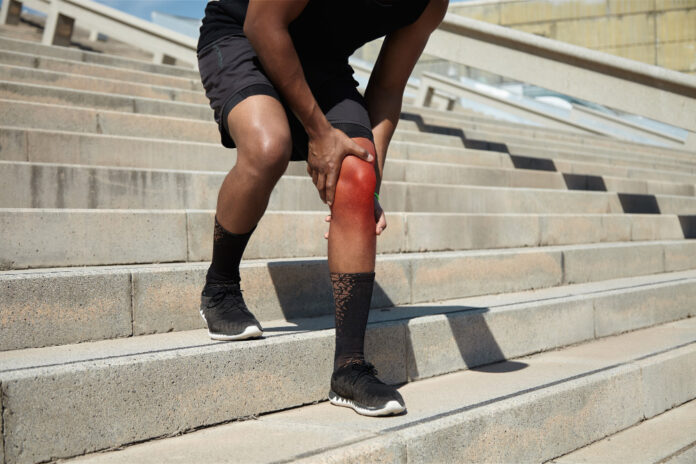Joint pain, ligament injuries, and other connective tissue issues are common challenges for athletes and active individuals alike, as well as those recovering from surgery or dealing with degenerative conditions. While physical therapy, rest, and proper exercise are essential components of recovery, nutritional supplements can play a significant role in supporting the healing process. In this guide, we delve into the nutritional supplements that can help accelerate joint and ligament recovery, the science behind their benefits, and practical advice on how to incorporate them into your daily regimen.
Understanding Joint and Ligament Recovery
The Role of Connective Tissue in Your Body
Joints and ligaments are critical components of the musculoskeletal system. Joints facilitate movement, while ligaments connect bones to each other, providing stability and support. When injuries occur—such as sprains, strains, or tears—these structures can become compromised, leading to pain, inflammation, and reduced mobility.
The Healing Process
Healing of joint and ligament injuries involves a complex process of inflammation, tissue regeneration, and remodeling. Proper nutrition is essential during each stage of recovery, as it supplies the building blocks needed for cell repair and collagen synthesis. Collagen, in particular, is the main structural protein found in connective tissues, making it a focal point in recovery strategies.
Key Nutritional Supplements for Recovery
Several supplements have been studied for their potential to support joint and ligament recovery. Here are some of the most well-researched options:
1. Collagen Peptides
How They Help:
Collagen peptides provide the amino acids necessary for collagen synthesis, a crucial element for repairing damaged connective tissue. Research indicates that collagen supplementation may improve joint pain and mobility, particularly in individuals with osteoarthritis or those recovering from ligament injuries.
Usage and Dosage:
- Form: Typically available as powders, capsules, or ready-to-drink shakes.
- Dosage: Common doses range from 10 to 20 grams per day. Many studies have used 15 grams daily to support joint health.
Practical Tip:
Mix collagen powder into your morning smoothie, coffee, or water to easily incorporate it into your daily routine.
2. Vitamin C
How It Helps:
Vitamin C is a powerful antioxidant essential for collagen synthesis. It not only helps produce collagen but also protects tissues from oxidative stress during the healing process.
Usage and Dosage:
- Form: Available in tablets, capsules, powders, or as a liquid supplement.
- Dosage: Recommended daily doses typically range from 500 to 1,000 mg, though individual needs may vary.
Practical Tip:
Pair vitamin C with collagen supplements for synergistic benefits. Consuming citrus fruits, berries, or bell peppers can also help boost your vitamin C intake naturally.
3. Omega‑3 Fatty Acids
How They Help:
Omega‑3 fatty acids, especially EPA and DHA, are known for their anti‑inflammatory properties. They can help reduce joint inflammation, minimize pain, and support overall joint health. Additionally, omega‑3s may help protect cartilage and slow the progression of joint degeneration.
Usage and Dosage:
- Form: Commonly available as fish oil or algae‑derived supplements (a vegan-friendly alternative).
- Dosage: Typical doses range from 1,000 to 3,000 mg per day of combined EPA and DHA.
Practical Tip:
If you prefer a plant-based option, choose algae‑derived omega‑3 supplements for a sustainable, vegan‑friendly source of these essential fats.
4. Glucosamine and Chondroitin
How They Help:
Glucosamine and chondroitin are naturally occurring compounds found in cartilage. They are often used together to support joint health by promoting the repair of cartilage and reducing the symptoms of osteoarthritis. While research results are mixed, many individuals report improved joint function and reduced pain when using these supplements.
Usage and Dosage:
- Form: Available in capsules, tablets, or combination formulas.
- Dosage: Typical dosages for glucosamine range from 1,500 mg per day, and chondroitin is often taken at around 800-1,200 mg per day.
Practical Tip:
Consult with your healthcare provider before starting these supplements, especially if you have shellfish allergies, as glucosamine is often derived from shellfish.
5. Turmeric/Curcumin
How It Helps:
Turmeric, and its active component curcumin, is renowned for its potent anti‑inflammatory and antioxidant properties. Curcumin can help reduce joint inflammation and pain, supporting the healing process for both joints and ligaments.
Usage and Dosage:
- Form: Available in capsules, tablets, powders, or as part of a multi‑herbal supplement.
- Dosage: Effective dosages vary, but many studies suggest taking 500 to 1,000 mg per day of curcumin, often enhanced with black pepper extract (piperine) to improve absorption.
Practical Tip:
Incorporate turmeric into your diet by adding it to smoothies, teas, or meals, or choose a curcumin supplement with added piperine for better bioavailability.
6. Methylsulfonylmethane (MSM)
How It Helps:
MSM is an organic sulfur compound that plays a role in reducing inflammation and supporting connective tissue health. It may help alleviate joint pain and improve flexibility by reducing oxidative stress and promoting collagen synthesis.
Usage and Dosage:
- Form: Available as powders or capsules.
- Dosage: Typical doses range from 1,000 to 3,000 mg per day, often split into two or three doses.
Practical Tip:
MSM is frequently found in joint health supplements, so consider choosing a comprehensive formula that includes MSM along with other joint-supporting nutrients.
How to Choose the Right Supplement for You
When considering nutritional supplements for joint and ligament recovery, it’s important to take a personalized approach. Here are some key considerations:
- Consult a Professional: Always speak with a healthcare provider or a registered dietitian before starting any new supplement, especially if you have underlying health conditions or are taking medications.
- Quality Matters: Look for high‑quality, third‑party tested products that ensure purity and accurate dosages.
- Combination Formulas: Some joint health supplements combine several of these ingredients (e.g., collagen, vitamin C, and MSM) to provide a synergistic effect. Evaluate your specific needs and consider a combination formula if it fits your goals.
- Consistency is Key: Supplements may take time to show benefits. Commit to a consistent routine and give your body several weeks to adjust and begin the healing process.
- Diet and Lifestyle: Remember that supplements are most effective when combined with a balanced diet, proper exercise, and other healthy lifestyle practices.
Integrating Supplements into Your Recovery Plan
A Holistic Approach
Recovery from joint and ligament injuries isn’t just about taking supplements—it’s about nurturing your body through a holistic approach that includes physical therapy, proper nutrition, and rest. Here’s how to integrate supplements into your overall recovery plan:
- Nutrition: In addition to the supplements mentioned, focus on eating anti‑inflammatory foods such as leafy greens, fatty fish, nuts, and berries to further reduce inflammation.
- Exercise: Engage in low-impact exercises like swimming, cycling, or yoga to maintain joint mobility without over-stressing injured tissues.
- Rest and Recovery: Give your body adequate time to rest. Proper sleep is crucial for healing and maintaining overall health.
- Physical Therapy: Follow your healthcare provider’s recommendations regarding physical therapy and rehabilitation exercises to rebuild strength and flexibility in your joints and ligaments.
Practical Tips
- Morning Routine: Consider taking your supplements with your morning meal. For example, blend collagen peptides and MSM into your morning smoothie along with a source of vitamin C.
- Meal Pairings: Pair your supplements with nutrient-dense foods. A vitamin C–rich fruit like an orange or kiwi can enhance the absorption of collagen and support overall healing.
- Stay Hydrated: Water plays a critical role in transporting nutrients throughout your body. Ensure you drink plenty of water throughout the day, especially when taking supplements.
- Monitor Your Progress: Keep a recovery journal to track your pain levels, mobility, and overall energy. This can help you and your healthcare provider determine if your supplement regimen is effective.
Scientific Insights on Joint and Ligament Recovery
Research supports the use of these supplements for joint health. For example:
- Collagen Supplementation: Studies have shown that collagen peptides can reduce joint pain and improve mobility in people with osteoarthritis. Research published in the Journal of Agricultural and Food Chemistry demonstrated that collagen supplementation not only promotes collagen synthesis but also helps maintain the integrity of joint cartilage.
- Vitamin C and MSM: Clinical trials have indicated that combining vitamin C with MSM can enhance collagen formation and reduce inflammation in damaged tissues.
- Omega‑3 Fatty Acids and Curcumin: Numerous studies confirm that omega‑3 fatty acids and curcumin help lower inflammatory markers, reduce pain, and support joint health.
These findings provide a strong foundation for using nutritional supplements as part of a comprehensive recovery plan for joint and ligament injuries.
Conclusion
Nutritional supplements can play a pivotal role in joint and ligament recovery by providing the essential building blocks for tissue repair and reducing inflammation. Supplements such as collagen peptides, vitamin C, omega‑3 fatty acids, glucosamine, chondroitin, turmeric/curcumin, and MSM each offer unique benefits that support the healing process and improve overall joint function.
By selecting high‑quality supplements, integrating them into a balanced, anti‑inflammatory diet, and combining them with appropriate exercise and rest, you can create a holistic approach to recovery that not only alleviates pain but also promotes long-term joint and ligament health.
Take a proactive approach to your recovery and give your body the support it needs to heal—one supplement at a time.
Disclaimer
This article is intended for informational purposes only and does not constitute medical or professional advice. Always consult with a qualified healthcare provider or registered dietitian before starting any new supplement regimen, especially if you are recovering from an injury or have a chronic health condition.
































